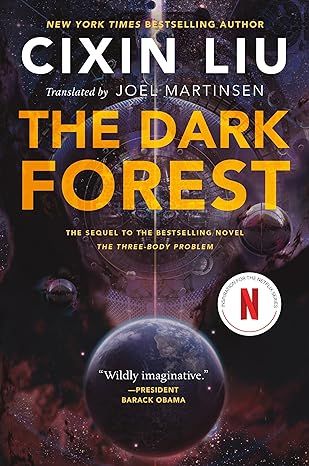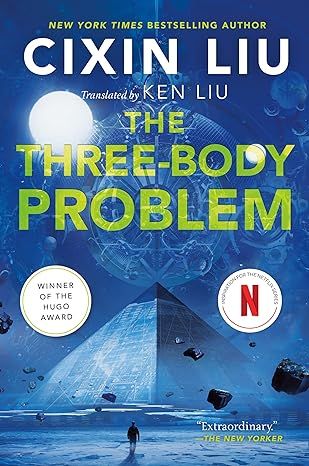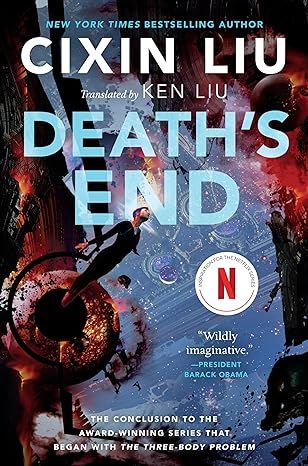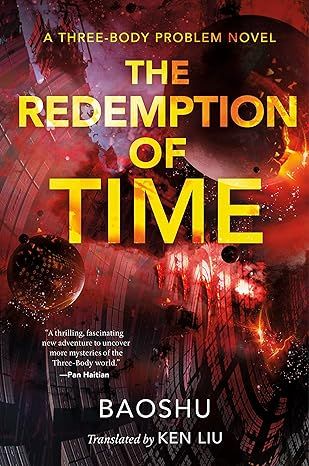The Dark Forest (The Three-Body Problem Series, 2)
4.6
-
28,684 ratings
The inspiration for the Netflix series 3 Body Problem!
Over 1 million copies of the Three-Body Problem series sold in North America
PRAISE FOR THE THREE-BODY PROBLEM SERIES: “A mind-bending epic.”―The New York Times • “War of the Worlds for the 21st century.”―The Wall Street Journal • “Fascinating.”―TIME • “Extraordinary.”―The New Yorker • “Wildly imaginative.”―Barack Obama • “Provocative.”―Slate • “A breakthrough book.”―George R. R. Martin • “Impossible to put down.”―GQ • “Absolutely mind-unfolding.”―NPR • “You should be reading Liu Cixin.”―The Washington Post
The Dark Forest is the second novel in the groundbreaking, Hugo Award-winning series from China's most beloved science fiction author, Cixin Liu.
In The Dark Forest, Earth is reeling from the revelation of a coming alien invasion-in just four centuries' time. The aliens' human collaborators may have been defeated, but the presence of the sophons, the subatomic particles that allow Trisolaris instant access to all human information, means that Earth's defense plans are totally exposed to the enemy. Only the human mind remains a secret. This is the motivation for the Wallfacer Project, a daring plan that grants four men enormous resources to design secret strategies, hidden through deceit and misdirection from Earth and Trisolaris alike. Three of the Wallfacers are influential statesmen and scientists, but the fourth is a total unknown. Luo Ji, an unambitious Chinese astronomer and sociologist, is baffled by his new status. All he knows is that he's the one Wallfacer that Trisolaris wants dead.
The Three-Body Problem Series
- The Three-Body Problem
- The Dark Forest
- Death's End
Other Books by Cixin Liu
- Ball Lightning
- Supernova Era
- To Hold Up the Sky
- The Wandering Earth
- A View from the Stars
Kindle
$11.99
Available instantly
Audiobook
$0.00
with membership trial
Hardcover
$21.50
Paperback
$15.29
Ships from
Amazon.com
Payment
Secure transaction
ISBN-10
9780765386694
ISBN-13
978-0765386694
Print length
528 pages
Language
English
Publisher
Tor Books
Publication date
August 15, 2016
Dimensions
8.25 x 1.4 x 9.25 inches
Item weight
1.2 pounds
Frequently bought together
Popular Highlights in this book
First: Survival is the primary need of civilization. Second: Civilization continuously grows and expands, but the total matter in the universe remains constant.
Highlighted by 4,480 Kindle readers
Without the fear of heights, there can be no appreciation for the beauty of high places.
Highlighted by 4,057 Kindle readers
The turbulence was purposeless, but in huge quantities of purposeless turbulence, purpose took shape.
Highlighted by 2,776 Kindle readers
Life needed smoothness, but it also needed direction. One could not always be returning to the point of origin.
Highlighted by 2,079 Kindle readers
Product details
ASIN :
0765386690
File size :
4700 KB
Text-to-speech :
Enabled
Screen reader :
Supported
Enhanced typesetting :
Enabled
X-Ray :
Enabled
Word wise :
Enabled
Editorial Reviews
Praise for the Three-Body Problem series:
"Wildly imaginative."―President Barack Obama
“A mind-bending epic.”―The New York Times
“Absolutely mind-unfolding. . . . a science-fiction epic of the most profound kind.”―NPR
“A breakthrough book . . . a unique blend of scientific and philosophical speculation, politics and history, conspiracy theory and cosmology.”―George R. R. Martin
"Liu Cixin's writing evokes the thrill of exploration and the beauty of scale. . . . Extraordinary."―The New Yorker
“[Liu turns] technically complex and existentially dreadful ideas into books that are impossible to put down.”―GQ
“A fascinating novel of ideas."–TIME
"The best kind of science fiction, familiar but strange all at the same time."―Kim Stanley Robinson
"Remarkable, revelatory, and not to be missed."―Kirkus Reviews, starred review
"Fans of hard SF will revel in this intricate and imaginative novel."―Publishers Weekly, starred review
“War of the Worlds for the 21st century.”―Wall Street Journal
“Liu’s picture of humanity’s place in the cosmos is among the biggest, boldest and most disturbing we’ve seen.”―Los Angeles Times
“Provocative.”―Slate
“A gripping and haunting sci-fi mystery.”―Cosmopolitan
"A must-read in any language."―Booklist
Sample
PART I
THE WALLFACERS
Year 3, Crisis Era
Distance of the Trisolaran Fleet from the Solar System: 4.21 light-years
It looks so old.…
This was Wu Yue’s first thought as he faced Tang, the massive ship under construction in front of him, bathed in the flickering of electric arcs. Of course, this impression was simply the result of countless inconsequential smudges on the manganese steel plates of the ship’s nearly completed body, left behind by the advanced gas-shield welding used on the hull. He tried unsuccessfully to imagine how sturdy and new Tang would look with a fresh coat of gray paint.
Tang’s fourth offshore fleet training session had just concluded. During that two-month session, Tang’s commanders, Wu Yue and Zhang Beihai, who was standing just beside Wu Yue, had occupied an uncomfortable role. Formations of destroyers, submarines, and supply ships were directed by battle group commanders, but Tang was still under construction in the dock, so the carrier’s position was either occupied by the training ship Zheng He or simply left empty. During the sessions, Wu Yue often stared vacantly at an empty patch of sea where the surface of the water, disturbed by crisscrossing trails left by passing ships, undulated uneasily, much like his mood. Would the empty spot ever be filled? he asked himself more than once.
Looking now at the unfinished Tang, what he saw was not just age but the passage of time itself. It seemed like an ancient, giant, discarded fortress, its mottled body a stone wall, the shower of welding sparks falling from the scaffolding like plants covering the stones … like it was less construction than archeology.
Afraid of pursuing these thoughts, Wu Yue turned his attention to Zhang Beihai next to him. “Is your father any better?” he asked.
Zhang Beihai gently shook his head. “No. He’s just holding on.”
“Ask for leave.”
“I did when he first went to the hospital. Given the situation, I’ll deal with it when the time comes.”
Then they went silent. Every social interaction between the two of them was like this. Where work was concerned they had more to say, of course, but something always lay between them.
“Beihai, work isn’t going to be like it was. Since we’re sharing this position now, I think we ought to communicate more.”
“We’ve communicated just fine in the past. Our superiors put us together on Tang, no doubt thanks to our successful cooperation aboard Chang’an.” Zhang Beihai laughed as he said this, but it was the sort of laugh that Wu Yue couldn’t read. Zhang Beihai’s eyes could easily read deep into the heart of everyone aboard the ship, be they captain or sailor. Wu Yue was entirely transparent to him. But Wu Yue could not read what was inside Zhang. He was certain that the man’s smile came from within him, but had no hope of understanding him. Successful cooperation does not equate to successful understanding. There was no question that Zhang Beihai was the most capable political commissar on the ship, and he was forthright in his work, exploring every last issue with complete precision. But his internal world was a bottomless gray to Wu Yue, who always felt like Zhang Beihai was saying: Just do it this way. This way’s best, or most correct. But it’s not what I really want. It began as an indistinct feeling that grew increasingly obvious. Of course, whatever Zhang Beihai did was always the best or most correct, but Wu Yue had no idea what he actually wanted.
Wu Yue adhered to one article of faith: Command of a warship was a dangerous position, so the two commanders must understand each other’s minds. This presented Wu Yue with a knotty problem. At first, he thought that Zhang Beihai was somehow on guard, which offended Wu. In the tough post of captain of a destroyer, was anyone more forthright and guileless than he was? What do I have worth guarding against?
When Zhang Beihai’s father had briefly been their superior officer, Wu Yue had spoken with him about his difficulties talking to his commissar. “Isn’t it enough for the work to be done well? Why do you need to know how he thinks?” the general had said, gently, then added, perhaps involuntarily, “Actually, I don’t know either.”
“Let’s get a closer look,” Zhang Beihai said, pointing to Tang through the sparks. Then both their phones chirped at the same time: a text message recalling them back to their car. This usually meant an emergency, since secured communications equipment was only available in the vehicle. Wu Yue opened the car door and picked up the receiver. It was a call from an advisor at battle group HQ.
“Captain Wu, Fleet Command have issued you and Commissar Zhang emergency orders. The two of you are to report to General Staff immediately.”
“General Staff? What about the fifth fleet training exercise? Half the battle group is at sea, and the rest of the ships will join them tomorrow.”
“I’m not aware of that. The order is simple. Just that one command. You can look at the specifics when you get back.”
The captain and commissar of the still-unlaunched Tang glanced at each other, then had one of the rare moments throughout the years where their thoughts aligned: Looks like that patch of water will remain empty.
Fort Greely, Alaska. Several fallow deer ambling along the snowy plain grew alert, sensing vibrations in the earth beneath the snow. Ahead of them, a white hemisphere opened. It had been placed there long ago, a giant egg half-buried beneath the ground, but the deer always felt it didn’t belong to this frozen world. The egg split open and issued forth thick smoke and flames, then, with a roar, it hatched a cylinder that accelerated upward, spurting flames from its bottom. The surrounding snowdrifts were thrown by the fire into the air, where they fell again as rain. When the cylinder gained enough height, the explosions that had terrified the deer were again replaced by peace. The cylinder vanished into the sky trailing a long white tail behind it, as if the snowscape was a giant ball of yarn from which a giant invisible hand had pulled a strand skyward.
“Damn it! Just a few more seconds and I’d have confirmed a launch interrupt!” said Target Screening Officer Raeder as he tossed aside his mouse. Raeder was thousands of kilometers away in the Nuclear Missile Defense Control Room at the NORAD Command Center, three hundred meters beneath Cheyenne Mountain near Colorado Springs.
“I figured it was nothing as soon as the system warning came up,” Orbital Monitor Jones said, shaking his head.
“Then what’s the system attacking?” asked General Fitzroy. Nuclear Missile Defense was just one of the duties of his new position, and he wasn’t entirely familiar with it yet. Looking at the monitor-covered wall, the general attempted to locate the intuitive graphical displays they’d had at the NASA control center: a red line snaking across the world map, forming a sine wave atop the map’s planar transformation. Novices found this inexplicable, but at least it let you know that something was shooting into space. But there was nothing so simple here. The lines on the screens were a complicated abstract jumble that was meaningless to him. Not to mention all the screens with swiftly scrolling numbers that had meaning only to the NMD duty officers. “General, do you remember when they replaced the reflective film on the ISS multipurpose module last year? They lost the old film. That’s what this was. It balls up and then unfurls in the solar wind.”
“But … it ought to be included in the target screening database.”
“It is. Here.” Raeder brought up a page with his mouse. Below piles of complicated text, data, and forms, there was an inconspicuous photograph, probably taken with an Earth telescope, of an irregular white patch against a black background. The strong reflection made it difficult to make out details. “Major, since you’ve got this, why didn’t you terminate the launch program?”
“The system ought to have searched the target database automatically. Human reaction times aren’t quick enough. But data from the old system hasn’t been reformatted for the new one, so it wasn’t linked in with the recognition module,” Raeder said. His tone was a little aggrieved, as if to say, I’ve demonstrated my proficiency by managing to pull this up so quickly in a manual search when the NMD supercomputer couldn’t, but I still have to put up with your clueless questions.
“General, the order came to switch over to actual operational state after the NMD moved its intercept headings into space, but before software recalibration was completed,” a duty officer said.
Read more
About the authors
Cixin Liu
Liu Cixin, born in June 1963, is a representative of the new generation of Chinese science fiction authors and recognized as a leading voice in Chinese science fiction. He was awarded the China Galaxy Science Fiction Award for eight consecutive years, from 1999 to 2006 and again in 2010. His representative work The Three-body Problem is the BEST STORY of 2015 Hugo Awards, the 3rd of 2015 Campbell Award finalists, and nominee of 2015 Nebulas Award. His works have received wide acclaim on account of their powerful atmosphere and brilliant imagination. Liu Cixin's stories successfully combine the exceedingly ephemeral with hard reality, all the while focussing on revealing the essence and aesthetics of science. He has endeavoured to create a distinctly Chinese style of science fiction. Liu Cixin is a member of the China Writers' Association and the Shanxi Writers' Association.
Read more
Reviews
Customer reviews
4.6 out of 5
28,684 global ratings
Josh Mauthe
5
Even more epic and compelling than its predecessor
Reviewed in the United States on December 18, 2018
Verified Purchase
It's hard to know where to begin talking about The Three-Body Problem trilogy (officially known as the Remembrance of Earth's Past series), a truly staggering piece of science-fiction written by Chinese author Cixin Liu and translated to English by Ken Liu and Joel Martinsen (Liu did books 1 and 3, while Martinsen did 2). A trilogy that spans literally thousands of years, deals with quantum physics, game theory, sociology, religion, space exploration, space colonization, and more, all driven by the nature of first contact with alien intelligence - there's a lot going on in this series, and that's before you start realizing just how much Cixin (reminder: Chinese names are traditionally written with the family name first and the given name second) truly takes on the advanced science of his ideas. And yet, when you finish it, you realize that you've read something truly incredible - a piece of hard science-fiction whose ambition, scope, richness, and ideas are impossible not to find yourself thinking about for days afterward.
Once you read The Dark Forest, the series' second volume, Cixin's ambition for this saga starts to come into focus. The question of first contact is settled, and the nature of the alien's approach is known: this is to be a takeover of our planet. But how can we deal with a race so much more advanced than our own, constant surveillance by extra-dimensional forces, and fractured elements of humanity working against us?
If The Three-Body Problem was a first contact novel done as hard science-fiction, The Dark Forest is an alien invasion novel, albeit one in which the actual invasion is still many, many years away. It's the first time Cixin starts using hibernation to leap through decades and even centuries, spanning huge chunks of time as humanity changes and evolves in the face of an arrival which will change everything. As humanity struggles to find ways to either defend itself or show that it means no harm, the race has to deal with its own fears of inevitable defeat or a desire to retreat from the only planet we've ever known.
It's not as if The Three-Body Problem wasn't already ambitious, but The Dark Forest is on a whole other level, dealing with interplanetary fleets, lightspeed travel, quantum computing, and more, watching as they evolve over huge swaths of time. But more than that, the novel is a deeply philosophical one, discussing the nature of life in the universe, questions about human nature and how we react in the face of threats, how we work together (or not), and game theory in how we try to handle uncertain intentions in allies and foes alike. Indeed, the central metaphor that gives the book its title (which doesn't arrive until near the novel's end) is a stunning one that helps you understand that what Cixin is writing about isn't just this particular alien invasion, but about the nature of all life in the universe and how we attempt to define ourselves in the face of reality.
That Cixin does this while, again, mixing in such a compelling story (focusing especially on the "Wallfacers", a small group of people tasked with covertly planning humanity's resistance against the invasion) is nothing short of remarkable. The Dark Forest builds beautifully off of the questions and ideas raised in The Three-Body Problem, but turns them into something else entirely, changing the questions from "how do we initially react" to "how would we redefine ourselves in the face of such news". Far from suffering from any sort of "middle book syndrome," The Dark Forest is incredible, engaging with incredible concepts but never neglecting the human characters that anchor its massive scope nor the ticking clock at its story's core.
To explain this series is a difficult challenge, to put it mildly. This is a series that spans a huge amount of time, deals with advanced scientific concepts in complex terms, grapples with rich philosophical and political ideas, debates questions without easy answers, and gives you a scope that can be daunting. It's a story of alien invasions, yes, but one in which the action sequences we're so used to are replaced with existential dread, a rethinking of our own lives, and a fear of the unknown that's hard to quantify. It's also the story of people caught up in these times, trying to give themselves a good life while never forgetting the larger questions of their era, and juggling their own fears with fears for humanity. In other words, it's what hard science-fiction is great at - thoughtful questions, big ideas, and speculation, all of which change the way you think about the world.
This series is a truly incredible achievement, one that honestly left me a bit staggered and reeling as I attempt to think about it all, but one that I love all the more for what it accomplishes. If you're a hard science-fiction fan, or simply someone who loves dealing with the complex ramifications of common ideas, this is a must read series. I've never read anything like it in my life, and I'm a richer person for the ideas it's inspired me to think about.
Read more
152 people found this helpful
Jay B
5
massive amount of sci-fi innovation. too much?
Reviewed in the United States on November 23, 2023
Verified Purchase
I’m torn between giving the 4.5 or 5 stars. On one hand, the level of thought innovation in this book is atmospheric. The story strides through eons, societies, and cultures with strength. The clever technology, plot, philosophical and strategic twists & turns are mind blowing. They merit a solid 5 stars.
Yet, I’m left partly perplexed. This is SO vast and sweeping that I experienced two emotions while reading it. First, I grew slightly weary of the expanse of it. The reader must keep an enormous amount about what’s happening in their brain whilst still integrating more. I felt nearly overwhelmed in the process. Second, the sweep of story is so vast that the number of characters required to tell it is huge. (The author provides a large dramatis personae up front, maybe in recognition of the assistance a reader will need.) I had to refresh my recollection more than once.
These things make me want to pull a half a star off my rating. Yet, it’s compelling enough that I won’t do that in the whole-star options presented by Amazon & Goodreads. (It’ll be nice to use a 1/4 or 1/2 star option at TheStoryGraph.)
For the record, the book also has two aspects that sadden me. There is a certain fatalism that is clearly wrought through much of the book. I won’t spoil the info about whether it’s resolved positively or not. But it is sad, because my Christian stance in life - hard, and logically forged - brings a different view to my life, and I’m saddened for people who feel that life is empty & meaningless.
In a second, related aspect, the author incorporates a little bit of religion and a treatment of God alongside a purely secular (as well as Chinese-rooted) orientation of the story. In the process he almost (almost) paints the people with God beliefs as the ones who may have hope that can free them from the despair of fatalism. Sadly, while he gave this some space, he didn’t have the desire or faculties to develop it, so it’s hard to conclude if he is respecting or ridiculing them.
I was ambivalent about Book 1. Book 2 is compelling. In to Book 3. (Thanks Chris B for encouraging me to press thru to #2.)
Read more
23 people found this helpful
Sheraz Choudhary
5
A slow but worthy read
Reviewed in the United States on April 25, 2024
Verified Purchase
The book is slow at times and could potentially use some editing to decrease redundancy and shorten the length. But I am rating it a 5 because the uniqueness, concepts explored and ending are so different and thought provoking. The last quarter of the book is better paced and amazing!
6 people found this helpful
Selcuk
5
A Marvelous Sequel that Expands the Horizons of Science Fiction
Reviewed in the United States on May 19, 2024
Verified Purchase
Having just completed “The Dark Forest,��” the second installment of the Three-Body series, I am thoroughly impressed. This book is a remarkable sequel to an already successful first book. It brilliantly builds on the foundation laid by its predecessor, delving deeper into the complexities of alien life and the profound possibilities it presents. The narrative is thought-provoking and compelling, pushing the boundaries of our imagination. Liu Cixin has crafted a masterpiece that not only entertains but also enhances our thinking about the universe and our place within it. Highly recommended for all science fiction enthusiasts! The ending is especially surprising :))
Read more
JJH
4
So different and so good!
Reviewed in the United States on April 14, 2024
Verified Purchase
I do love the feel of this series. It's very... familiar but unique. The long dialogs are very interesting. The ideas proposed and the science involved is fascinating. Really great series!
2 people found this helpful
Top Cixin Liu titles
Similar Books

Iron Flame (The Empyrean, 2)
4.6
-
164,732
$14.99

A Court of Thorns and Roses Paperback Box Set (5 books) (A Court of Thorns and Roses, 9)
4.8
-
26,559
$37.99
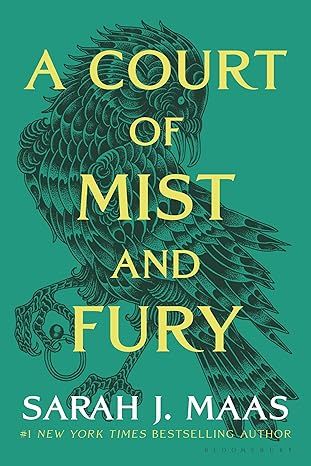
A Court of Mist and Fury
4.8
-
187,001
$8.21

The Wind-Up Bird Chronicle: A Novel
4.4
-
10,205
$13.99
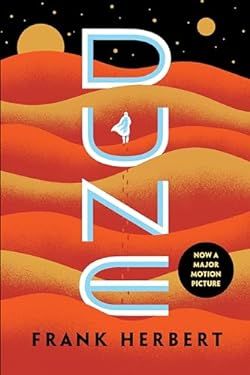
Dune (Dune Chronicles, Book 1)
4.7
-
95,481
$9.99
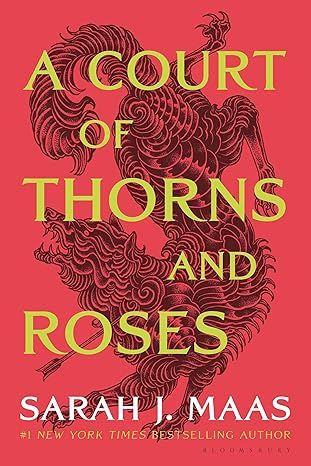
A Court of Thorns and Roses (A Court of Thorns and Roses, 1)
4.6
-
208,038
$8.21
Best Sellers

The Great Alone: A Novel
4.6
-
152,447
$5.49

The Four Winds
4.6
-
156,242
$9.99

Winter Garden
4.6
-
72,838
$7.37

The Nightingale: A Novel
4.7
-
309,637
$8.61

Steve Jobs
4.7
-
24,596
$1.78

Iron Flame (The Empyrean, 2)
4.6
-
164,732
$14.99

A Court of Thorns and Roses Paperback Box Set (5 books) (A Court of Thorns and Roses, 9)
4.8
-
26,559
$37.99

Pretty Girls: A Novel
4.3
-
88,539
$3.67

The Bad Weather Friend
4.1
-
34,750
$12.78

Pucking Around: A Why Choose Hockey Romance (Jacksonville Rays Hockey)
4.3
-
41,599
$14.84

Start with Why: How Great Leaders Inspire Everyone to Take Action
4.6
-
37,152
$9.99

Tomorrow, and Tomorrow, and Tomorrow: A novel
4.4
-
95,875
$13.99

Weyward: A Novel
4.4
-
27,652
$11.99

Tom Lake: A Reese's Book Club Pick
4.3
-
37,302
$15.74

All the Sinners Bleed: A Novel
4.4
-
12,894
$13.55

The Mystery Guest: A Maid Novel (Molly the Maid)
4.3
-
9,844
$14.99

Bright Young Women: A Novel
4.2
-
8,485
$14.99

The Wager: A Tale of Shipwreck, Mutiny and Murder (Random House Large Print)
4.5
-
28,672
$14.99

Hello Beautiful (Oprah's Book Club): A Novel (Random House Large Print)
4.4
-
79,390
$14.99

Small Mercies: A Detective Mystery
4.5
-
16,923
$10.00

Holly
4.5
-
31,521
$14.99

The Covenant of Water (Oprah's Book Club)
4.6
-
69,712
$9.24

Wellness: A novel
4.1
-
3,708
$14.99

The Art Thief: A True Story of Love, Crime, and a Dangerous Obsession
4.3
-
4,805
$14.99
